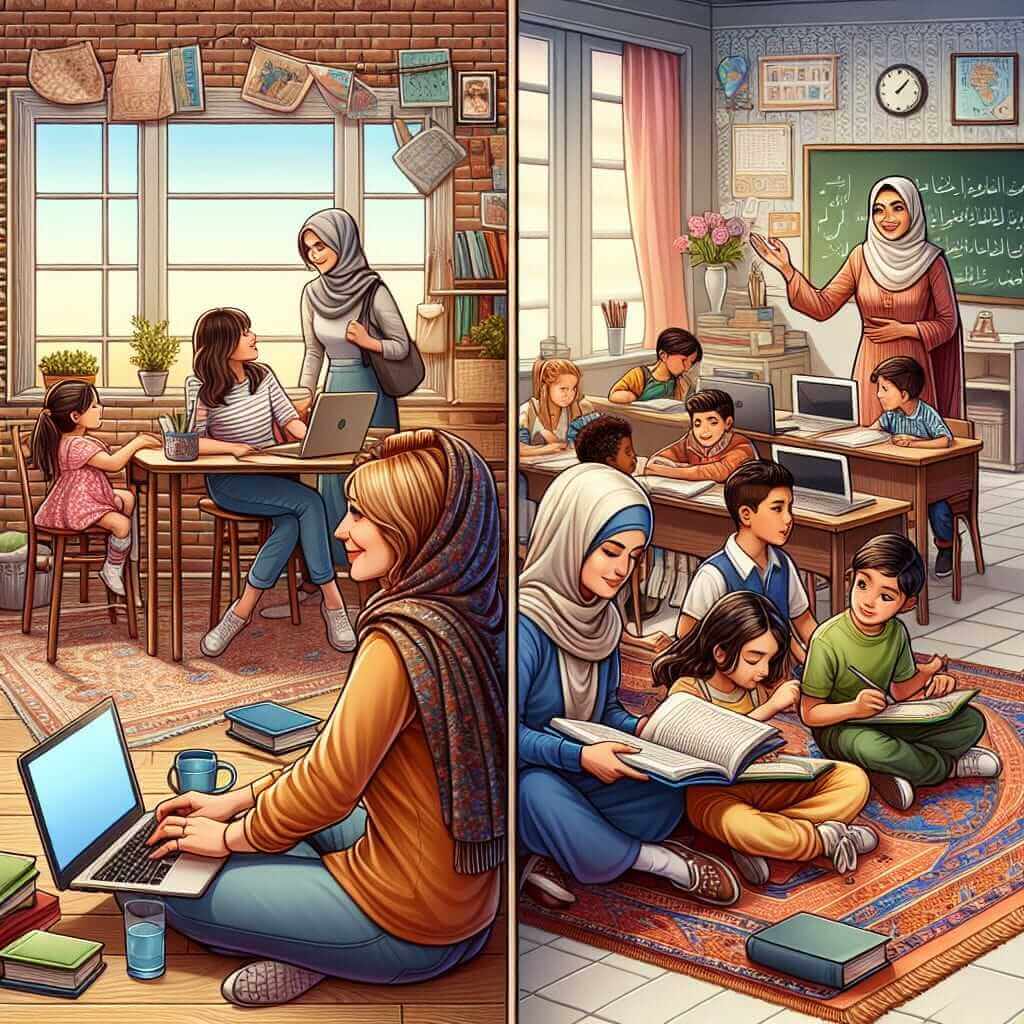Homeschooling, a rapidly growing trend worldwide, frequently appears in IELTS Writing Task 2. This essay will delve into the challenges and benefits of homeschooling, providing a sample answer to a typical IELTS question and analyzing its structure and vocabulary.
Sample IELTS Essay Question
Some parents believe that it is better to educate their children at home, while others think that it is essential for children to attend school. Discuss both views and give your own opinion.
Analysis of the Question
This question requires you to:
- Discuss both sides: You need to present balanced arguments for both homeschooling and traditional schooling.
- Give your opinion: Clearly state your stance on the issue.
- Support your arguments: Use relevant examples and explanations to justify your points.
Sample Essay
Over the past few decades, homeschooling has emerged as a viable alternative to traditional education. While some parents are drawn to the flexibility and individualized learning it offers, others remain convinced that schools provide an irreplaceable social and academic environment. This essay will explore both perspectives before concluding that a balanced approach is most beneficial for a child’s development.
Proponents of homeschooling argue that it allows for tailored learning experiences. Freed from the rigid curriculum and pace of traditional classrooms, parents can cater to their child’s unique strengths and interests. This personalized approach can be particularly advantageous for children with learning disabilities or those who excel in specific subjects. Moreover, homeschooling fosters a close-knit family environment, allowing for stronger parent-child bonds and shared learning experiences.
However, critics contend that homeschooling deprives children of crucial social interaction. Schools are microcosms of society, offering opportunities to interact with diverse peers, navigate social situations, and develop teamwork skills. These experiences are vital for developing social skills and emotional intelligence, which are essential for success in life. Furthermore, schools provide access to a wider range of resources, such as libraries, laboratories, and sporting facilities, that may not be readily available to homeschooling families.
In conclusion, both homeschooling and traditional schooling present distinct advantages and disadvantages. While homeschooling allows for tailored education and strengthens family bonds, schools offer unparalleled social interaction and access to resources. Ultimately, the optimal approach depends on the individual child’s needs, the family’s circumstances, and a balanced consideration of both academic and social development.
Word Count: 275

Notes on Vocabulary and Grammar:
- Use academic vocabulary: Words like “proponents,” “contend,” “crucial,” and “unparalleled” enhance the essay’s tone.
- Vary sentence structure: Use a mix of simple and complex sentences to maintain reader interest.
- Use transition words: Words like “moreover,” “however,” and “furthermore” ensure a smooth flow of ideas.
Difficult Vocabulary:
- Proponents (noun /prəˈpōnənts/): People who support something.
- Tailored (adjective /ˈtālərd/): Adapted for a particular purpose or person.
- Rigid (adjective /ˈrijid/): Not flexible; strict.
- Fosters (verb /ˈfôstərz/): Encourages the development of something.
- Deprives (verb /dɪˈpraɪvz/): Prevents someone from having something important.
- Microcosms (noun /ˈmīkrəˌkäzəmz/): Small versions of something larger.
- Navigate (verb /ˈnavəˌɡāt/): Find one’s way around.
- Unparalleled (adjective /ˌənˈparəˌleld/): Having no equal.
- Optimal (adjective /ˈäptəməl/): Best or most favorable.
- Distinct (adjective /dəˈstiNGkt/): Clearly different; separate.
Conclusion
Mastering the art of discussing both sides of an argument while presenting a clear opinion is crucial for achieving a high score in IELTS Writing Task 2. By analyzing the question carefully, using appropriate vocabulary, and structuring your essay logically, you can confidently tackle any topic related to homeschooling or other educational trends. Remember to practice regularly with different prompts to broaden your vocabulary and refine your writing skills.